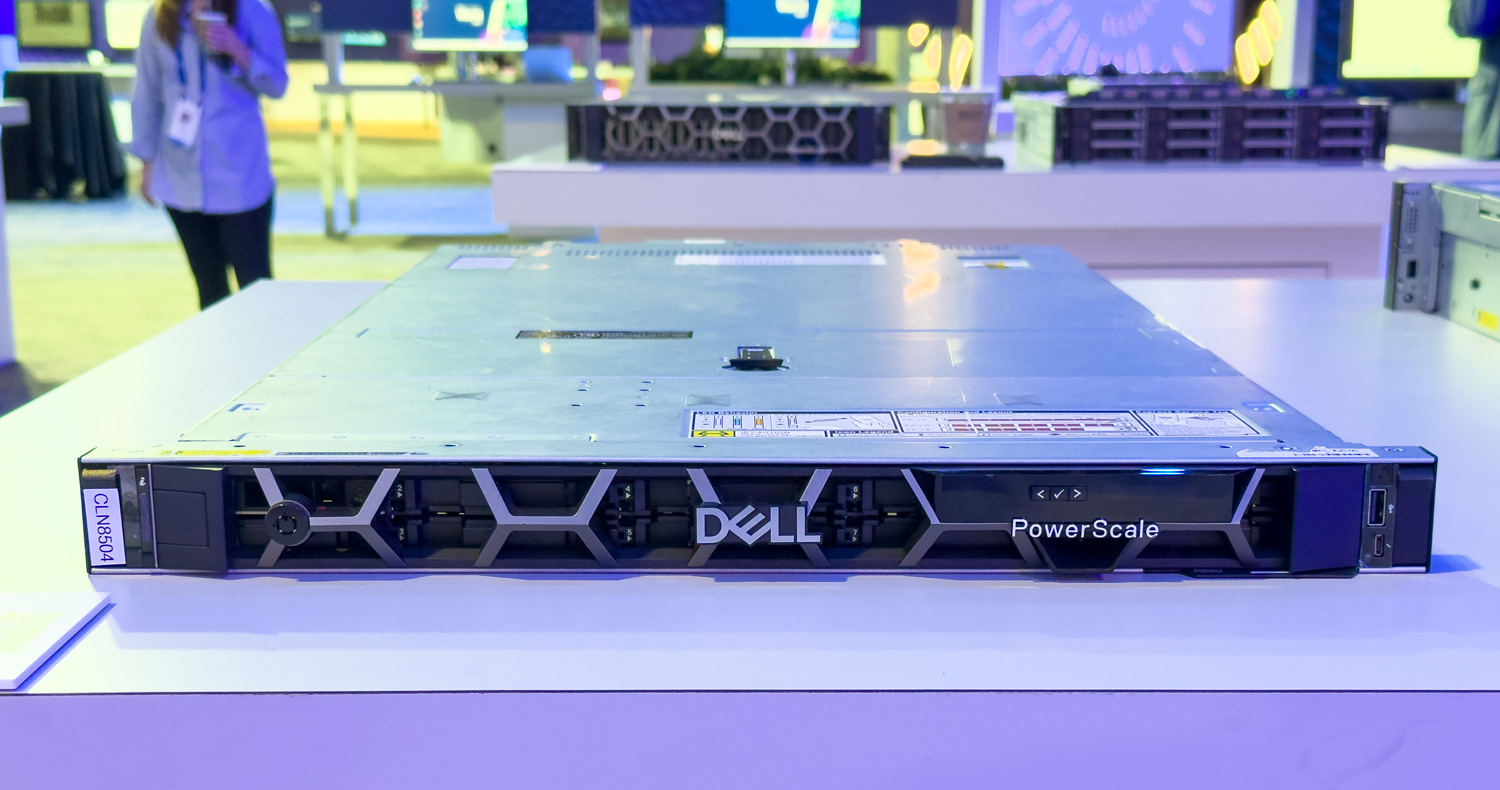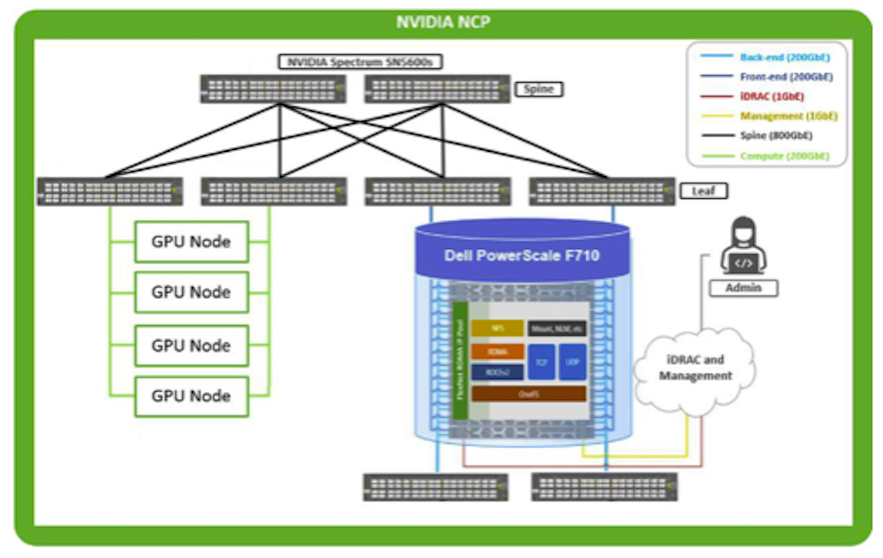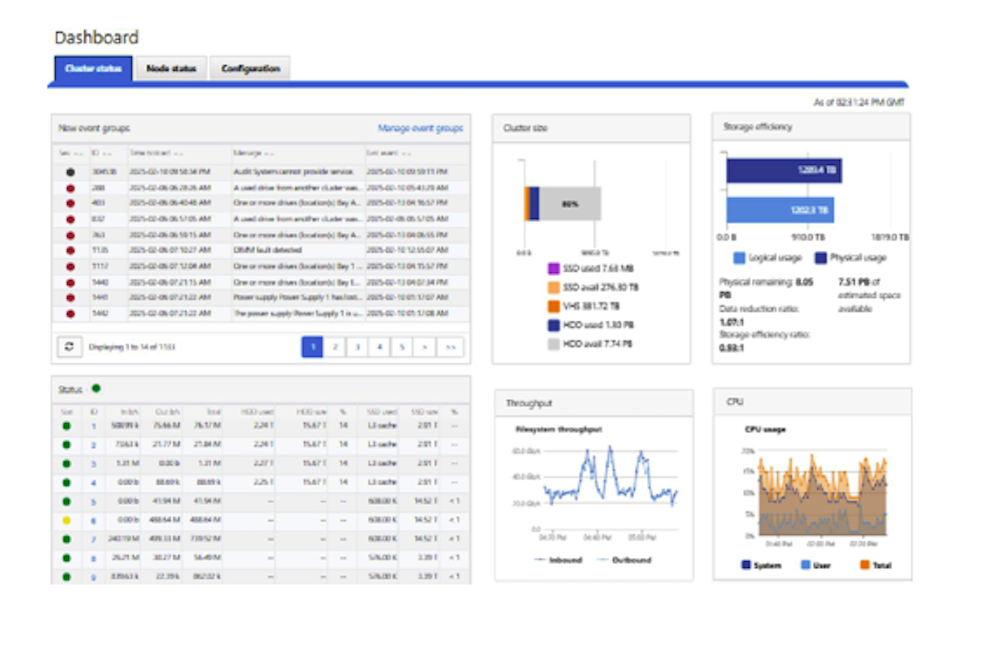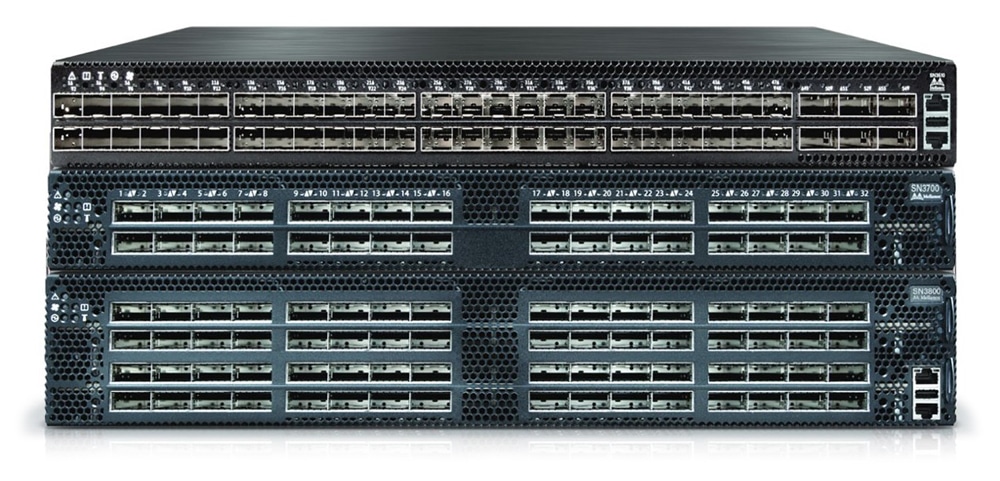Dell Technologies has been officially welcomed into the NVIDIA Cloud Provider (NCP) program, with its PowerScale platform earning certification for High-Performance Storage. This milestone, announced at NVIDIA GTC, underscores Dell’s commitment to delivering scalable, production-ready infrastructure for AI workloads across enterprise and service provider environments.
What is the NVIDIA Cloud Provider Program?
The NVIDIA Cloud Provider (NCP) program is designed to validate and certify infrastructure partners that deliver robust, production-grade environments for GPU-accelerated AI workloads. By certifying platforms that meet stringent performance, interoperability, and scalability standards, NVIDIA ensures that its ecosystem of service providers can confidently deliver AI solutions optimized for the full NVIDIA AI stack—from model training and inference to analytics and deployment.
PowerScale: The Backbone of AI Data Infrastructure
At the heart of Dell’s AI Data Platform, PowerScale provides the scalable, high-performance storage foundation required to streamline data pipelines and accelerate AI outcomes. With its recent NCP certification, PowerScale is now recognized as a certified storage layer for GPU-accelerated AI, offering proven integration with NVIDIA reference architectures and certified support for HGX-based AI factories. This enables seamless data access for large language model (LLM) training, inference, and analytics, eliminating guesswork for infrastructure providers and accelerating time-to-market for new AI services.

PowerScale’s inclusion in the NCP program is more than a badge. It’s a validation of Dell’s ability to deliver at scale. Certified technologies are rigorously tested for compatibility with key NVIDIA platforms, including DGX SuperPOD and NVIDIA AI Enterprise. PowerScale’s NCP certification joins a growing list of NVIDIA validations, such as DGX SuperPOD reference architecture and NVIDIA Enterprise Storage Certification, reinforcing Dell’s commitment to performance, scalability, and reliability at every layer of the AI stack.
Joint Blueprints and Lifecycle Management
Dell’s partnership with NVIDIA extends beyond certification. PowerScale customers benefit from access to validated NVIDIA-Dell reference designs, which accelerate deployment and ensure cohesive lifecycle support from both vendors. These blueprints are particularly valuable for providers launching multi-tenant AI environments, where predictability, repeatability, and support alignment are critical to success. Optimized data throughput and performance tuning across the stack are built in, enabling organizations to deploy with confidence.
PowerScale’s scale-out architecture is engineered to support environments ranging from petabytes to exabytes, all with zero disruption. With NCP certification, cloud service providers (CSPs) can align their data storage strategies with the growth of GPUs, while service providers can plan AI roadmap rollouts with confidence. End users benefit from predictable, high-throughput access to training data at every scale, ensuring that storage limitations never bottleneck AI workloads.
PowerScale and NVIDIA Integration
NVIDIA GPUs, such as those in the HGX and Dell PowerEdge XE series, are built for exceptional performance in AI, machine learning (ML), and high-performance computing (HPC) workloads. The integration of Dell PowerScale F710 clustered storage with NVIDIA HGX H100, H200, and B200 servers delivers industry-leading performance, capacity, and durability at scale. Starting with a minimum of three nodes, PowerScale clusters expand linearly to hundreds of petabytes, offering seamless capacity and throughput growth while integrating with NVIDIA Base Command Manager Essentials for centralized monitoring.

The PowerScale F710 platform, powered by OneFS, delivers optimal throughput for both small and large files across concurrent, sequential, and blended I/O patterns. Its 1U 10-drive chassis is available in several NVMe TLC SSD configurations, ensuring high performance for diverse workloads. PowerScale’s architecture is purpose-built for high-performance file and object services, leveraging NVMe flash for easy access and management.
Unified, Intelligent File System
OneFS, the distributed file system at the core of PowerScale, unifies file system, volume management, and data protection into a single software layer. This creates a unified, intelligent file system that spans all nodes, supporting a wide range of applications and workloads on a single cluster. Enterprise-grade features include automated, policy-based storage tiering, cloud storage integration, and multiprotocol data access (NFS, SMB, S3, HTTP, FTP, HDFS, IPv4, and IPv6), enabling efficient data sharing without disruptive migrations.

Performance and capacity scale linearly from terabytes to hundreds of petabytes, with dynamic, per-file erasure coding for data protection. OneFS ensures complete coherence and consistency across the cluster, automatically managing caching and eliminating the need for manual intervention, making it ideal for performance-critical applications.
Simplicity and Efficiency at Scale
PowerScale’s fundamental simplicity allows organizations to manage large-scale data environments without increasing headcount. Adding capacity or performance is straightforward: rack and power the node, connect it to the backend network, and instruct the cluster to add the node, typically in under a minute. OneFS Autobalance and SmartConnect automatically rebalance capacity and distribute client connections, while SmartQuotas and SmartQoS provide granular control over resource allocation and performance SLAs.
PowerScale’s Comprehensive Data Services
PowerScale OneFS offers a suite of enterprise data services, including:
- SnapshotIQ for read-only snapshots
- Data reduction via inline compression and deduplication
- SmartPools for automated tiering across flash, hybrid, and archive nodes
- CloudPools for off-cluster tiering to S3 targets
- SyncIQ and SmartSync for asynchronous replication and cloud copy
- SmartLock WORM for data immutability
- SmartQoS for protocol operation limits and business prioritization
- SFSE for small-file storage efficiency
These features enable the secure, automated, and cost-efficient management of datasets and workloads, ensuring a low total cost of ownership (TCO) and maximizing storage savings.
High-Performance Networking and Multi-Tenancy
The converged network between GPU compute and PowerScale storage is built on NVIDIA Spectrum-4 SN5600 switches, utilizing a leaf-spine topology, which ensures high availability and throughput. PowerScale’s private backend network, using redundant 200 GbE NICs, acts as a distributed systems bus for node-to-node communication. Storage is mounted on NVIDIA HGX compute nodes via standard NFS mount points, with Dell’s PowerScale NFS Multipath Client Driver enabling full use of RDMA and nconnect for maximum performance.

PowerScale’s multi-tenancy capabilities are built on four pillars: security, data, networking, and administration. OneFS Access Zones, SmartConnect, and SmartPools enable secure separation of authentication providers, data access, and network interfaces, supporting complex, multi-tenant environments.
Management and Telemetry
PowerScale offers three management portals: a graphical WebUI, a command-line interface (CLI), and RESTful API endpoints. The intuitive WebUI allows for rapid provisioning, configuration, and monitoring, while detailed telemetry and event logging provide in-depth visibility into system health and performance.
Dell Technologies’ acceptance into the NVIDIA Cloud Provider Program, with PowerScale certified for High-Performance Storage, marks a significant step forward for organizations building AI infrastructure at scale. With proven integration, robust data services, and unmatched scalability, PowerScale empowers enterprises and service providers to deploy, manage confidently, and scale AI workloads today and into the future.




 Amazon
Amazon